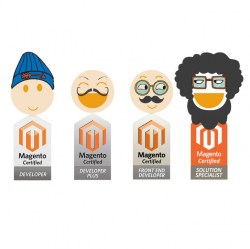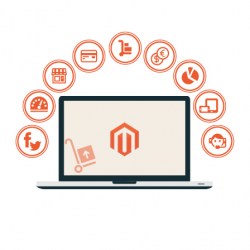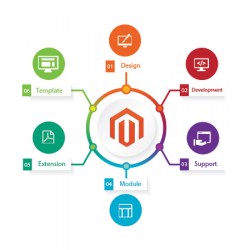Programming & Tech
Magento Development
Procuring Magento development services involves finding a qualified Magento development agency or developer to build, customize, and maintain your Magento e-commerce website. Magento is a popular e-commerce platform that offers flexibility, scalability, and a range of features for online stores. Here are the steps to consider when procuring Magento development services:
-
Define Your Requirements:
- Clearly outline your project requirements, including the type of e-commerce website you need, your target audience, desired features, and any specific customizations you require.
-
Budget Allocation:
- Determine your budget for Magento development. This will help you narrow down your options and ensure you are realistic about what you can achieve within your budget.
-
Research Potential Developers or Agencies:
- Look for Magento development agencies or freelancers with experience in e-commerce and Magento. You can search online, ask for recommendations, or use platforms like Upwork, Freelancer, or Clutch to find reputable developers or agencies.
-
Check Their Portfolio:
- Review the portfolio of potential developers or agencies to see examples of their previous Magento projects. Ensure they have experience in creating websites similar to what you have in mind.
-
Check References:
- Reach out to their past clients to ask about their experience working with the developer or agency. This can provide insights into their reliability and quality of work.
-
Evaluate Expertise:
- Assess their expertise in Magento, including their knowledge of Magento 2 if that's the version you plan to use. Magento offers various editions, so make sure they are proficient in the edition that suits your needs.
-
Discuss Customization Needs:
- If you require custom features or designs, discuss these requirements with the developers or agencies to ensure they can meet your needs.
-
Timeline and Milestones:
- Set clear project timelines and milestones to ensure the project progresses according to plan. Make sure to establish deadlines for key deliverables.
-
Cost and Payment Terms:
- Discuss the cost of development and payment terms. Determine whether you will pay a fixed price, hourly rate, or based on project milestones.
-
Communication and Support:
- Clarify how communication will be handled during the development process. Ensure that the developer or agency provides ongoing support and maintenance after the website is launched.
-
Legal Agreement:
- Draft a clear contract that outlines all project details, including scope, timeline, cost, and intellectual property rights. Having a legal agreement in place is essential for protection.
-
Launch and Testing:
- Once the development is complete, thoroughly test the website to identify and fix any issues before launching it to the public.
-
Post-Launch Support:
- Ensure that the developer or agency provides post-launch support and maintenance services to address any future issues or updates.
-
SEO and Marketing Integration:
- Consider how the developer can integrate SEO (Search Engine Optimization) best practices and marketing tools to enhance your website's visibility and reach.
-
Evaluate Performance:
- Continuously monitor the website's performance and gather user feedback to make improvements and updates as needed.
Remember that the success of your Magento e-commerce website largely depends on choosing the right development partner, so take your time in the selection process and ensure a good fit for your project's needs.



